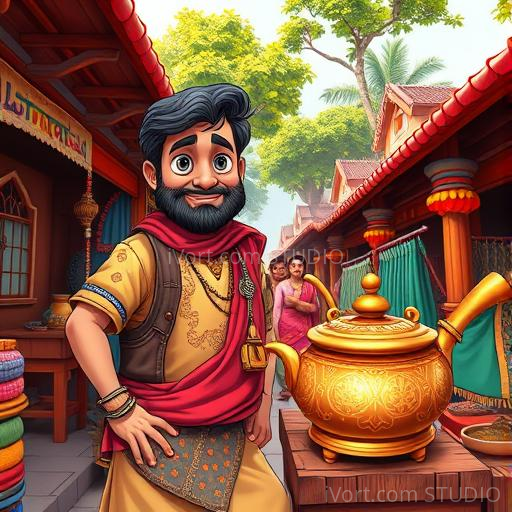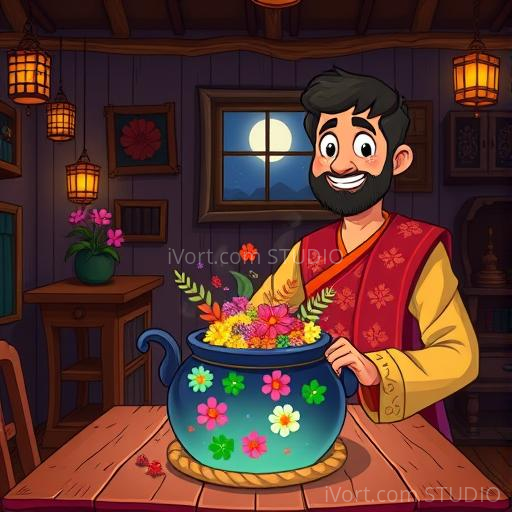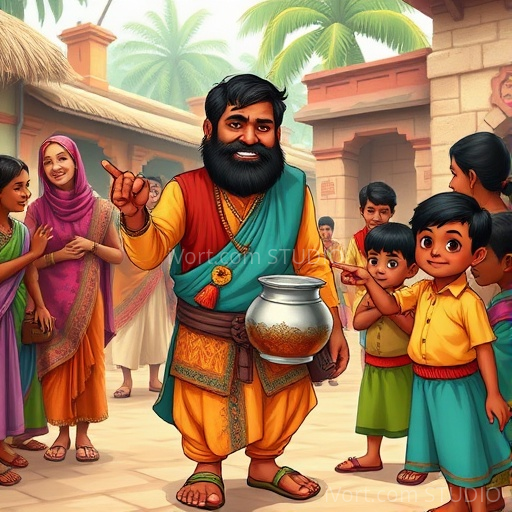In a bustling Indian village, there lived a kind-hearted trader named Ramu. One day, he discovered a mysterious, shimmering pot in his shop. Curious, he wondered if it was truly magical. As he touched the pot, it glowed softly, filling the room with a warm, golden light. Ramu’s eyes widened with wonder—could this be a gift from the gods? Excited but cautious, he decided to find out what secrets the pot held.

That night, Ramu decided to test the pot. As he poured water into it, the pot suddenly sprouted tiny, colorful flowers and sweet-smelling spices. To his amazement, the flowers danced and the spices floated in the air like magic! Ramu’s heart filled with joy and a little bit of worry—what if the magic was too powerful? He knew he had to be careful with this special treasure.

The next morning, the villagers heard about Ramu’s magic pot. A mischievous boy named Gopal dared Ramu to use the magic to help their village. Ramu hesitated, worried about the power of the magic. But seeing the villagers’ hopeful faces, he decided to share the magic’s gift—by making water flow into the dry fields and filling the village with fresh, fragrant air. Everyone cheered, grateful for the magic that brought hope.

From that day on, Ramu used the magic pot to help others—watering plants, feeding animals, and sharing sweet spices with everyone. The magic wasn’t just in the pot, but in Ramu’s kindness and willingness to help. The villagers learned that true magic comes from caring for each other. Ramu’s simple act of sharing turned the magic pot into a symbol of love and community, reminding everyone that kindness is the greatest magic of all.

